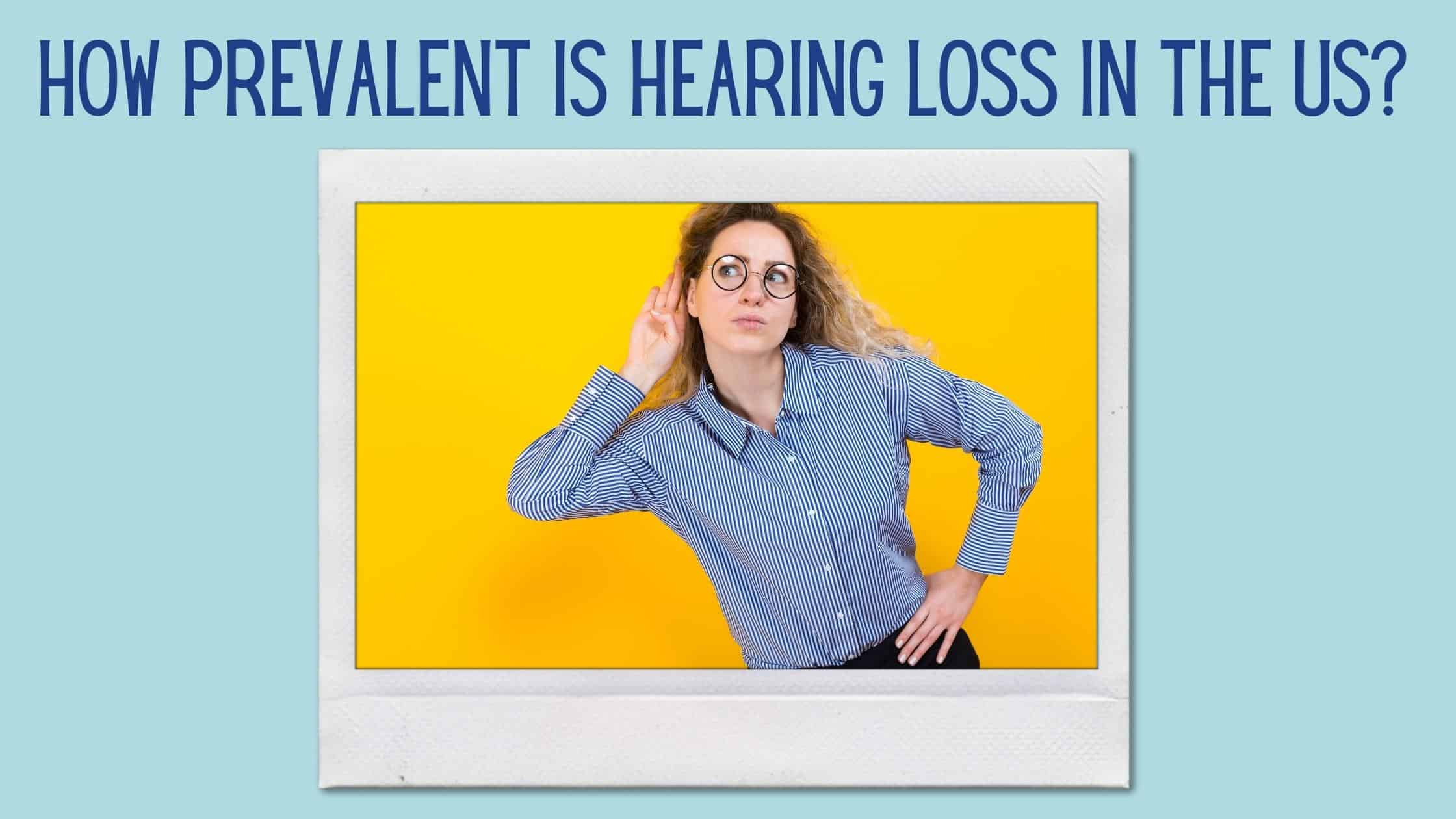
Hearing loss is incredibly common, but is not often seen or talked about in the media and everyday life. In truth, millions of people across the US live with significant hearing loss. Sadly, the majority of hearing loss goes untreated despite the ramifications of untreated hearing loss on health and quality of life.
Hearing Loss In the United States
Significant hearing loss is thought to affect about 15% of American adults over age 18, or around 37.5 million people. Hearing loss can manifest itself at any age, with 27.7 million cases of hearing loss occurring in the age range of 20-69 years of age. In this age range, men account for around two-thirds of hearing loss cases, while women are roughly one-third.
Job-related and occupational noise exposure can be a huge contributor to your risk of hearing loss. Hearing loss affecting our ability to understand speech, known as speech-frequency hearing loss, was found in 18% of 20-69-year-olds who had 5 or more years of occupational noise exposure. For 20-69-year-olds who did not work around dangerous noise levels, speech-frequency hearing loss was only 5.5%, meaning hearing loss was more than 3 times as likely for people with job-related noise exposure.
Hearing Loss and Age
There is no age range that is excluded from risk of significant hearing loss. Today, out of every 1000 births, between 2-3 babies will be born with hearing loss. Early ear infections, which can contribute to hearing damage in children, are incredibly common, affecting around 80% of children before the age of 3. As standard procedure, all babies and children should be periodically screened for hearing loss as it can restrict language development and learning when left untreated at early ages.
Although hearing loss can affect people at any age, the likelihood of hearing loss increases as we age, in part because much hearing loss is irreversible and cumulative, amassing over time into significant hearing issues, and also is caused by our auditory system becoming more susceptible to damage as we get older. Let’s look at rates of disabling hearing loss for example: hearing loss that is considered disabling affects 2% of adults age 45-54, 8.5% of adults age 55-64, 25% of adults age 65-74 and 50% of adults age 75 and over. This exponential rise emphasizes how important hearing exams become as we age.
The Impact of Hearing Loss
Hearing loss is a serious condition and ignoring it has consequences. Despite this, hearing loss is still dramatically under-treated in the United States. On average, people wait seven years between when they notice a change in their hearing and when they seek treatment for hearing problems. In adults over age 70, less than 30% of those who could benefit from hearing aids use them. For those under age 70, hearing aid adoption is even less frequent. Only 16% of people between the ages of 20 and 69 who could benefit from hearing aid use choose to use hearing aids.
This untreated hearing loss isn’t a small issue. First, the earlier hearing loss is detected and treated the easier it is to adjust to hearing aids and the risk of associated problems stemming from untreated hearing loss is greatly reduced. When left unaddressed, hearing loss can exacerbate a range of other health problems. Hearing loss is intimately linked to many aspects of our quality of life. When hearing loss is not treated it increases a person’s risk of suffering from depression, anxiety and social isolation.
Untreated hearing loss also can have a long-term cognitive impact on the brain. Any degree of untreated hearing loss has been shown to slow our cognitive performance and response. Hearing loss increases a person’s risk of falling and accidental injury by limiting the cognitive bandwidth for balance and coordination. Most dramatically, untreated hearing loss is linked to higher risk rates of dementia; the greater the hearing loss, the greater the risk.
Getting Started
If you are concerned about your hearing, it’s important to take action to care for your hearing health. The first step is scheduling a hearing exam. A hearing exam offers you comprehensive testing and helps you connect with hearing aids and other treatments for your concerns. There’s no time like the present to make the move towards better hearing, so contact us today to set up your next hearing test!
